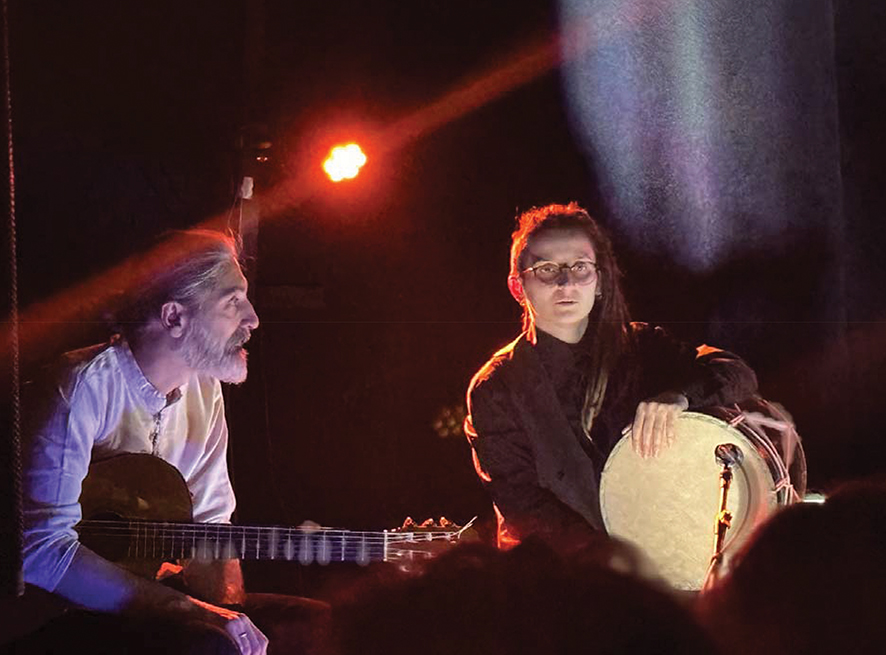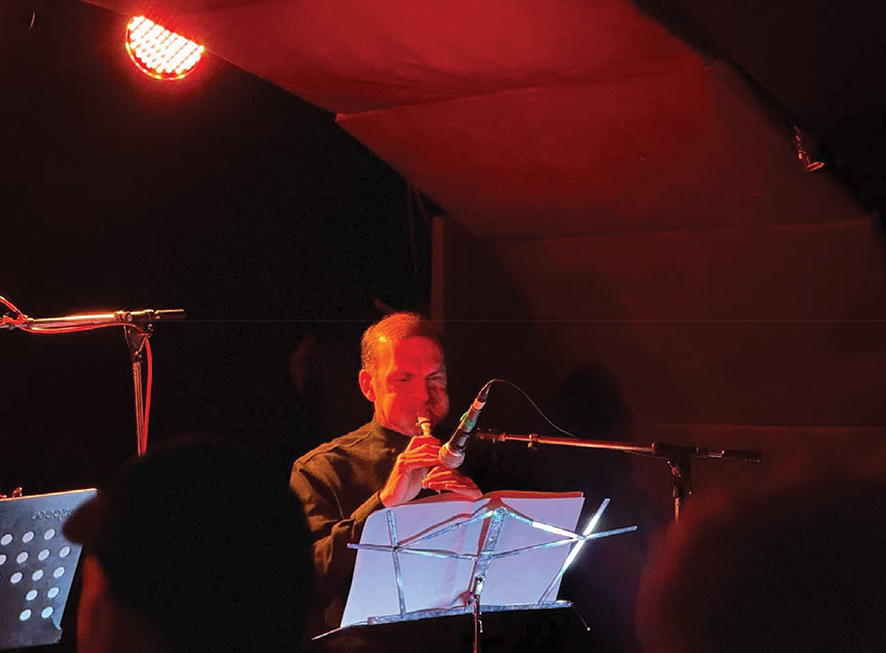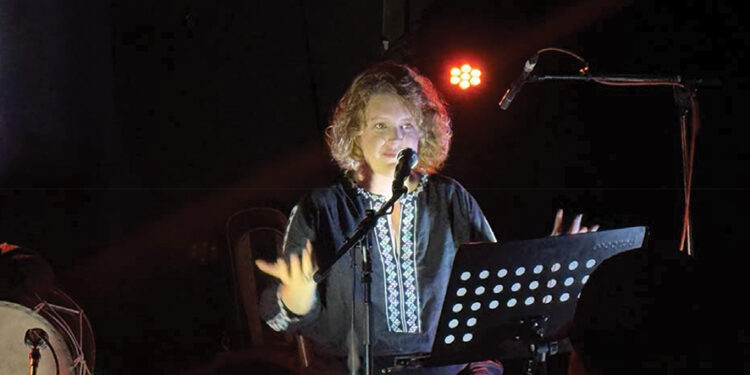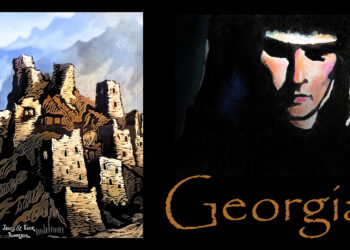On Wednesday night, the tight interior of Backstage76, nestled on Giorgi Chanturia Street, transformed into something far older and far more alive than its modern bones might suggest. It became a verandah in Sololaki, a half-open door in Avlabari, a night-window in Ortachala. For one hour, the newly-formed ensemble Dasta Avala summoned the spirits of a forgotten Tbilisi — not the mythical, museumified one, but the everyday city of Ladino lullabies, Armenian waltzes, Georgian chants, and Azerbaijani modes.

A Multilingual Archive of Emotion
The ensemble’s name — Dasta Avala — hints at something elusive. “Dasta” suggests a gathering, a touch, a hand. “Avala,” in Persian-influenced Georgian, implies both falling and arrival. The ensemble, born from the vision of French musician Zoé Perret, is exactly this paradox: a soft landing of what once fell into silence.
Opening with sparse, mournful, nostalgic lullabies, sung in the soft hush of Zoé’s violin-accompanied voice, the concert was not a performance, but a séance. Perret, whose years in Georgia have imbued her interpretations with a rare intimacy, does not try to dominate the material: she lets it breathe. Her vocals — understated, honest, sometimes even deliberately fragile — do not modernize these songs: they remember them.
Beside her, David Khositashvili’s guitar is less accompaniment than threadwork, stitching rhythmic embroidery with gentle counterpoint. Ivane Mkrtchyan, a master of the double-reeded Armenian instrument, played like someone in conversation with ghosts. His duduk, rich in microtonal melancholy, turned the air into something dense, almost fog-like — memory made audible. Nazi Chavchavadze, on doli and daira, offered a contrapuntal life-beat to that fog: the sound of steps, of doors closing, of women dancing in slippers.

A City Remembering Itself
The repertoire avoided cliché. This was not a tourist set-list. These were the side-Bs of the city’s musical memory — songs passed down in kitchens, lost in translation, revived from archival snippets, and oral testimonies. Many had no clear origin. Some slipped between languages mid-verse. The harmonic tension felt like the very essence of Old Tbilisi: a city never fully resolved, always humming with the beauty of its contradictions.
The multiculturalism here wasn’t decoration. It was structure. Rather than performing separate “ethnic” songs in sequence — a common pitfall in multicultural programming — Dasta Avala wove the lineages together, letting the similarities clash and the differences harmonize. If the concert had a thesis, it was this: Tbilisi was never monolithic, and its monolith lies in that.

Dasta Avala is not engaging in folkloric nostalgia. They do not reconstruct; they resurrect. And in doing so, they pose a subtle political question: What does it mean to remember a city through its most fragile voices? Through songs sung by minorities, by women, by those who left or were made to leave? There is an ethics to their work — a refusal to monumentalize, a preference for intimacy over grandeur.
It is rare to leave a concert feeling like you’ve unlearned something — unlearned what you thought music from this region was, unlearned what performance means, unlearned the borders between languages and styles. Dasta Avala invites exactly this unlearning. And in its place, they offer a slower, deeper, more generous understanding of this city and its polyphonic soul.
By Ivan Nechaev














